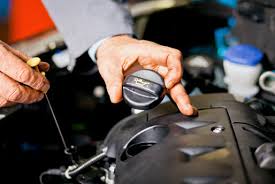Buying used cars is full of many risks. It is easier for a person seeking to buy a used car to be the victim of a scam. Most prospective buyers are very wary when dealing with the person or dealer selling a used car. However, very few of them, a mere 33 percent of all used car buyers, are careful enough to ask for a roadworthy Campbellfield from the dealer or seller. The rest proceed to buy before considering the full effect of the action they are about to take. Checking the vehicle’s history is important to discovering whether it has any encumbrance. The actual history might highlight any debts that the car owes or accidents in which it has been involved.

The drivers who do not value the importance of the reports feel that they have too much to do within a very short time. They consider the buying process very complicated to spend time on what they believe is unnecessary. If the driver is moving to the banks or financial institutions to try raising the money needed to proceed with the purchase, he might consider the remaining time too precious to spend on conducting PPSR search. The buyer might be spending the time he has to make a decision regarding the most preferable type of car, thus left with no time to conduct a proper and detailed search regarding the vehicle’s history. See this page for further information regarding dyno tuning.
Many prospective buyers, the one-third that do the actual search, are victims of misinformation. They use the Internet as he main source through which to learn all they need to know about the history of any car they would love to buy. What they may not realize is that the Internet might not always be the best source of such vital information. Many websites that offer such services are responsible for a large portion of the misinformation that currently exists out there regarding the history of some of the vehicles put up for sale. Some websites are very unreliable. Some websites are unable to separate the truths from the untruths, filling buyers with a lot of garbage.
A good number of the buyers believe what sellers tell them. They do not see the need of conducting additional revs check. When dealing with a seemingly trustworthy seller or car owner, it is very easy to believe everything coming out of his mouth to a point of seeing no need for conducting further research to learn about the history of the car with regard to accidents, ownership, age and debts. When referred to a trustworthy seller by an equally trustworthy individual known personally to the prospective buyer, the need for additional checks becomes invalid. The reference by a trustworthy person is a proof of the seller’s reliability.
Finally, the driver has to pay close to $30 to obtain a single report about the history of the car he would love to buy. Unfortunately, the drivers do not see the need of parting with such an amount to obtain the report. On the other hand, smart drivers know that spending such a small amount is worth it if this means that they would avoid spending thousands of dollars on repairs and settling other issues that the report regarding the vehicle’s history would have highlighted. The history of a car helps prepare the new owner regarding what to expect once he obtains full ownership.

